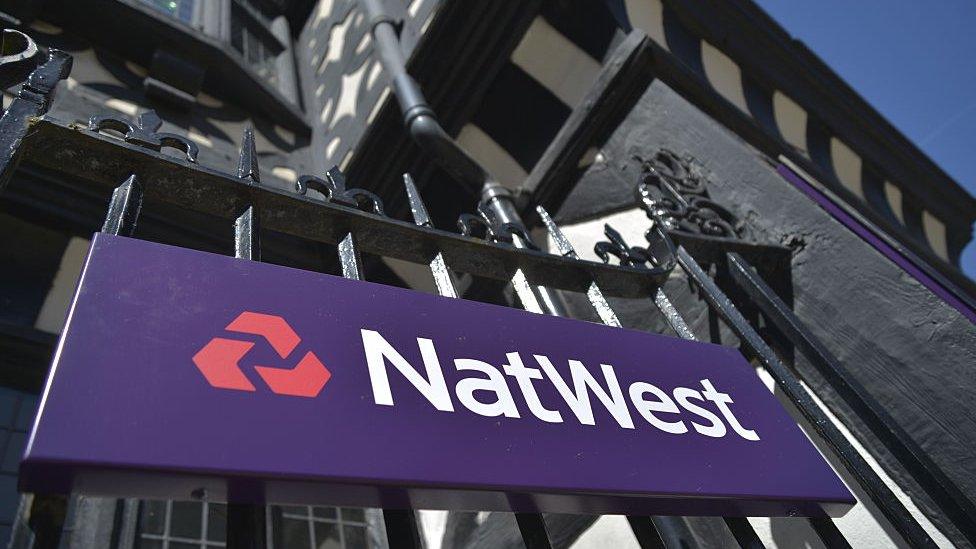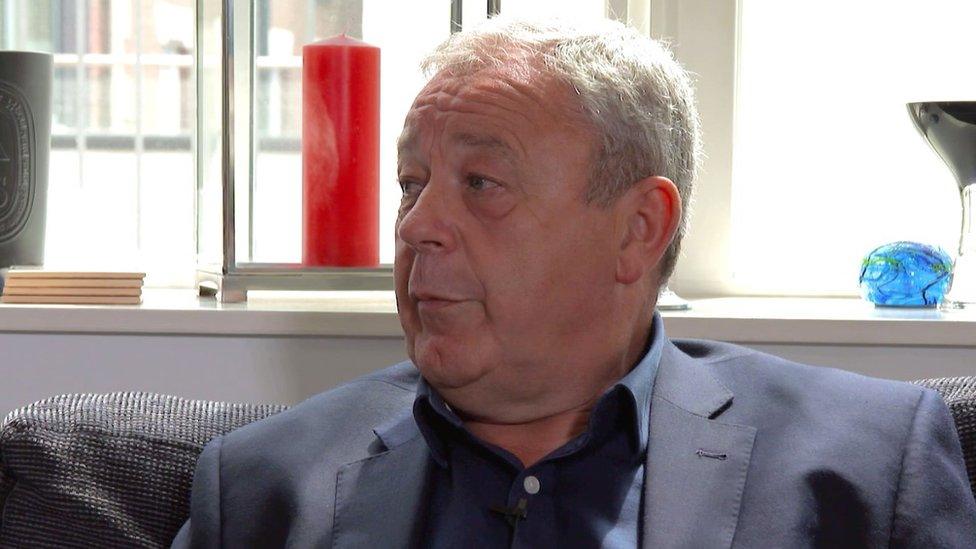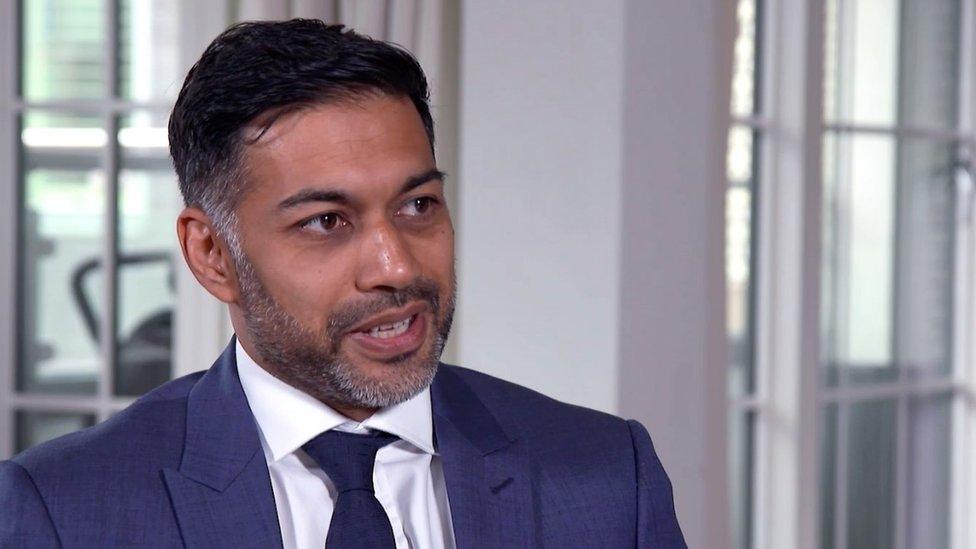NatWest most complained about bank for fraud claims
- Published

NatWest is the most complained about bank when it comes to handling fraud claims, a BBC probe has revealed.
The Financial Ombudsman has seen a rise in complaints about NatWest, with it becoming the most complained about bank for fraud this year.
In addition, in the last six months BBC Watchdog Live has had nearly twice as many complaints about how NatWest handles fraud cases compared to rivals.
NatWest said it was "working harder than ever" to keep customers safe.
Arun Chauhan, a lawyer and member of the Fraud Advisory Panel, told the programme; "There's a growing body of evidence that they're falling behind other banks and how they're dealing with fraud, now that's on two things.
"That's on the front end side, that's their ability to pick up these transactions that are fraudulent and stop them in the first place, but the second is how they're dealing with customers, are they being fair to customers."

'The way the bank dealt with it is appalling'

'They [Natwest] blamed me as a customer," says Kevin Patrick
Retired police officer Kevin Patrick was one of the many viewers to get in touch with the BBC after he was defrauded of more than £11,000 in June 2018.
After problems with his email account Kevin contacted his provider, and was given a unique reference number. Shortly afterwards Kevin received a call from someone posing as an engineer working for the company, who quoted the same unique reference number he'd been given.
With no reason to suspect the person he was talking to wasn't who they claimed to be, Kevin agreed to give them access to his computer.
The fraudsters managed to access both his HSBC and NatWest accounts. An attempt to move money from his HSBC account was stopped by the bank and flagged as fraudulent.
After being unable to move any money out of his HSBC account, the fraudsters managed to transfer £11,000 from his NatWest account.
At the time, the bank refused to refund Kevin because he allowed fraudsters to take over his computer.
After BBC Watchdog Live investigated, the bank recognised they did not get it right and have "wholeheartedly apologised for the distress caused."
"The way the bank dealt with it is appalling, they've blamed me as a customer. Basically they're saying that because I turned the computer on it's my fault."
"As a former police officer, I find that really offensive because that's like blaming you as a victim," said Kevin.
Fraud was also attempted on Kevin's HSBC account. However, the bank stopped this from happening.


Arun Chauhan says how Kevin Patrick was conned was 'sophisticated'
Fraud lawyer Mr Chauhan said the rules were clear and how Kevin was conned was sophisticated.
"NatWest somehow have not picked this up as an unusual transaction, £11,000 out of the blue, is an odd transaction. HSBC clearly have something that works and NatWest on this occasion have something that doesn't."
NatWest said it had recently increased the warnings it issued to customers making transactions on the app and online; updated its app; increased alerts to customers and continued to invest heavily in its security features.
"Since February, we've carried out additional checks on more than 11,000 payments and stopped £8.7m of potential scam payments after alerting our customers.
"When customers do become victim to fraud or scams, we treat each case individually and constantly update our processes and procedures to ensure they are fair and above or in-line with the industry and guidance from the ombudsman and regulators.
"Consequentially complaints to FOS have decreased by 48%," it said.
The bank said it now wanted to work with the BBC to review the cases of the customers who've contacted the show because they've been dissatisfied with the outcome of their fraud complaint.
"We are a founding member of the Contingent Reimbursement Model code launched yesterday and are committed to working with regulators, law enforcers and the industry to try to reduce fraud and increase security for our customers," it added.
A new voluntary code designed to stop victims of fraud losing money came into effect this week. The code sets clear standards for banks to protect customers against fraud and take action in the event it does happen.
You can watch Watchdog Live's full report on BBC One on Wednesday 29 May at 20:00 GMT, and afterwards on iPlayer.
- Published28 May 2019

- Published12 May 2019

- Published21 May 2019
